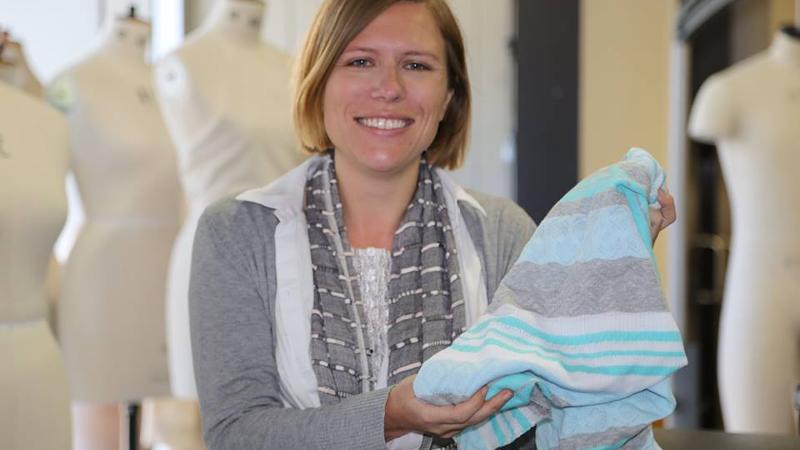
Grace Kirk from the Creative Industries Faculty's online magazine, No Walls, interviews QUT researcher, practitioner, activist and academic Lauren Solomon about her mission to expose the poor working conditions of Cambodian garment workers.
Have you ever browsed a rack of clothes for under $15 at your local Zara, H&M or Topshop, and thought, ‘what a deal!?’ Have you ever stopped on your way to the cashier to look at the tag and see where that piece of clothing was made? The clothes you buy may have been made by Cambodian garment workers who are a crucial part of the fast fashion supply chain. Is there a true human cost to getting a bargain?
Fast fashion is the industry term for catwalk trends becoming mass produced garments. With significant focus on the supply chain, these garments are manufactured quickly, so they appear in store at an affordable price.
Investigating fashion, design and sustainability at QUT is researcher, practitioner, activist and sessional academic Lauren Solomon. She has heard first-hand from female Cambodian garment workers about the poor working conditions they experience – where they are unable to visit the toilet during their shift, where transport to work is dangerous and unpredictable, where they spend their entire working life of 20 years packing garments into boxes.
Through her Doctorate of Creative Industries project, Empowering Women in the Cambodian Garment Industry, Ms Solomon has presented capacity building workshops to factory worker union representatives in Cambodia, which aim to empower these women to be able to share the skills with their community.
Ms Solomon explains that while fast fashion occurs across Asia, she chose Cambodia because of its unique history, huge garment industry and accessibility.
The garment and footwear industry is Cambodia’s largest industry, making up 78 per cent of the economy and employing over 600,000 garment workers, of which 85-95% are female.
The nature of fast fashion is temporary, not only in the clothes being produced but all along the supply chain, starting with the factory workers. Ultimately, big business benefits from the cheap labour in Cambodia, and due to the temporary nature of the industry, these workers are at risk of exploitation.
Labour laws exist in order to protect factory workers, however, it’s difficult to ensure that these are always being enforced. For example, a key issue raised in Solomon’s workshop was that the factory workers find it difficult to leave their station to go to the bathroom.
“When you’ve got simple basic rights like that not being respected, it’s problematic,” Ms Solomon said.
For the factories working out of Cambodia, the bottom line is the primary concern. Investing time and money into the skill level of their employees is not always a priority. This is where Ms Solomon has seen a huge gap in the industry; one that she has impacted through the six day workshop she ran in Cambodia in January 2017.
For local consumers, Ms Solomon’s main suggestion is not to become overwhelmed by the scale of the issue and to educate themselves so they know where their purchases come from.
“It’s one of those things. We aren’t saying to boycott. What we’re saying is that there are things that could be done to make the situation better for the people,” she said.
Read more about the project and how Ms Solomon gained exclusive access to the ‘invisible’ factory workers at No Walls.




